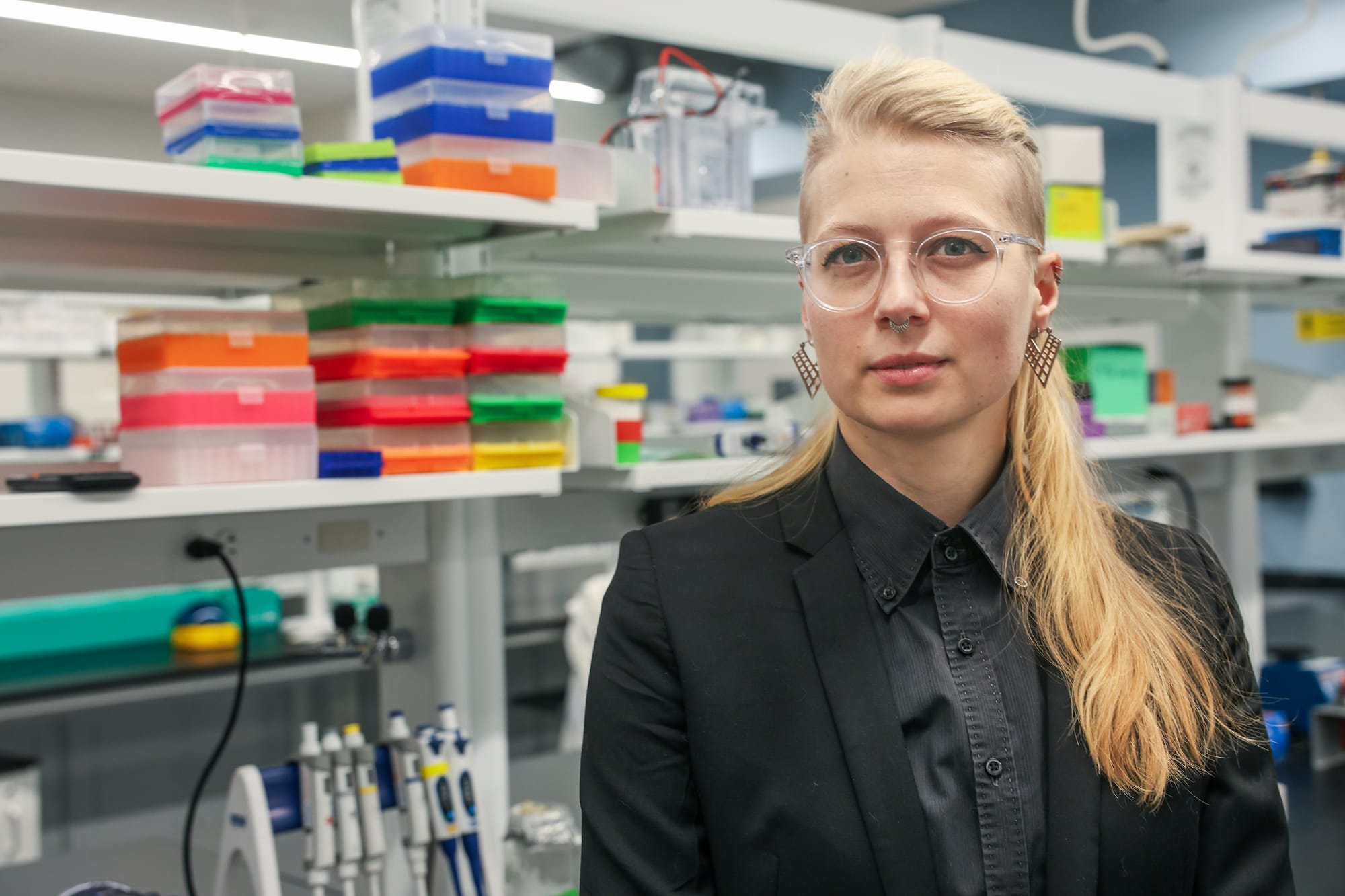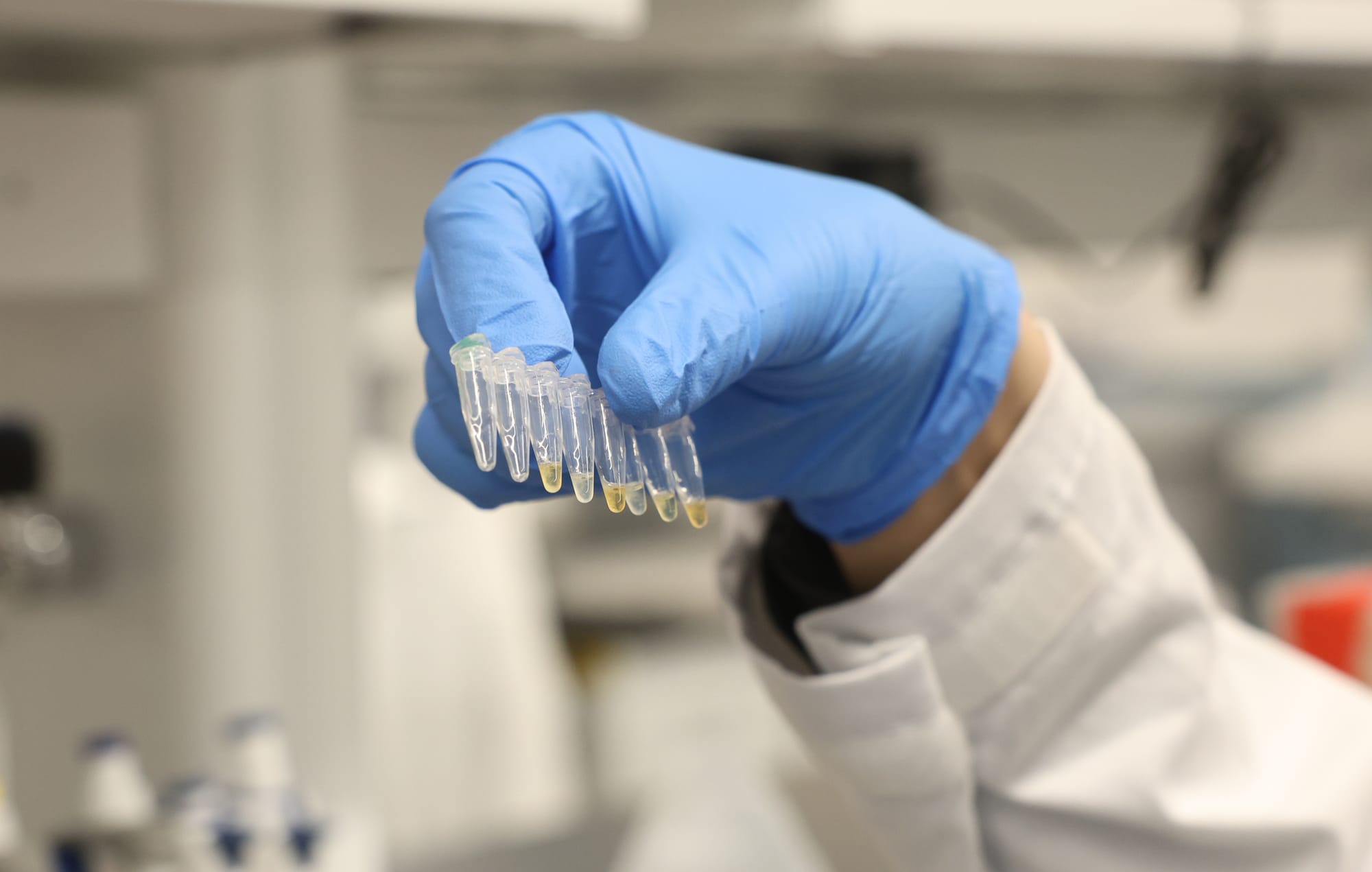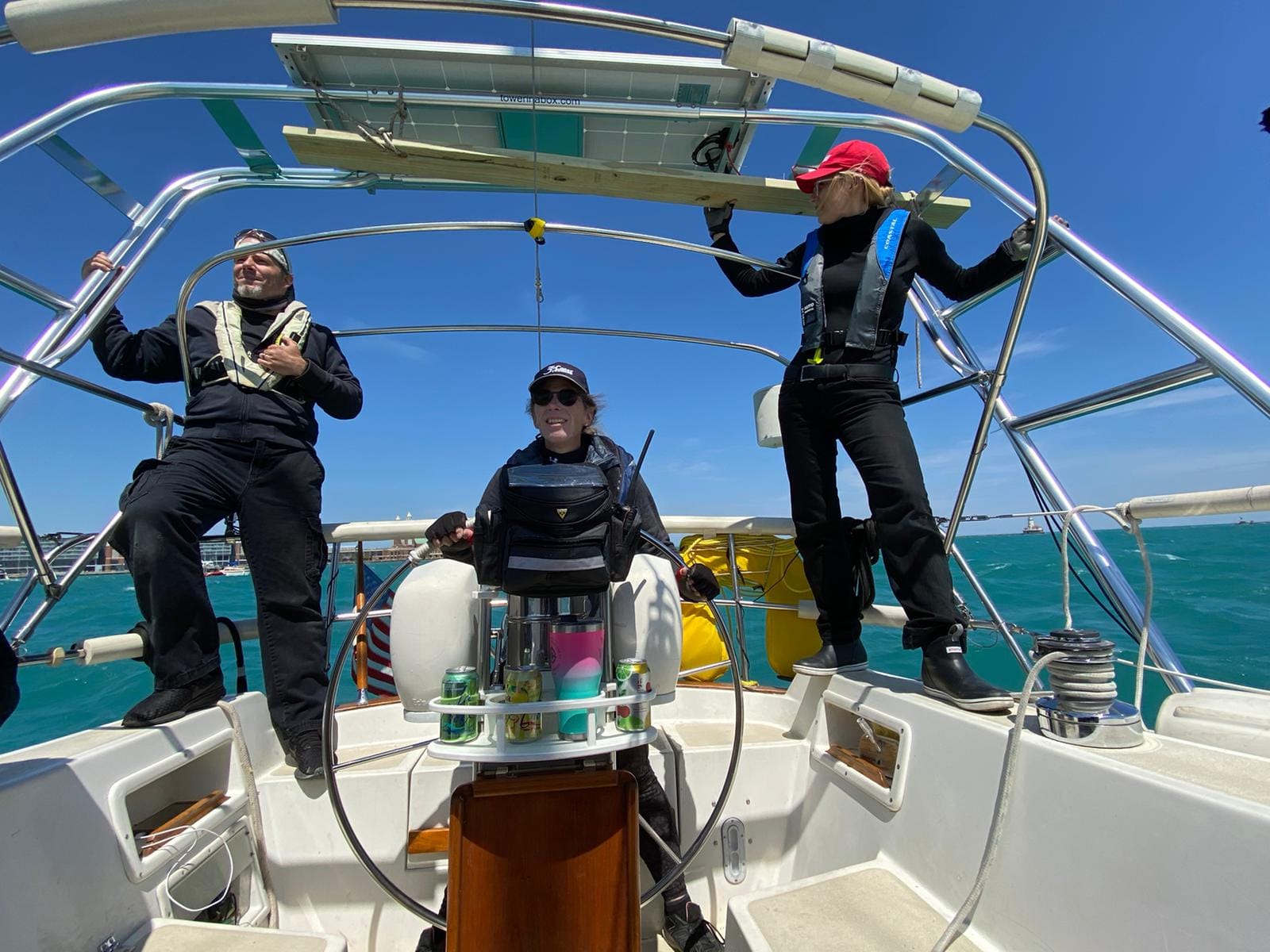Dr. Jessica A. Willi, a Swiss biochemist, brings her passion for synthetic biology to ULethbridge as one of the newest faculty members in the Department of Chemistry & Biochemistry. Her research focuses on reprogramming biological systems to create new possibilities in medicine and technology.
Curious about her groundbreaking work and transparent teaching approach? Read the full Q&A to learn more about her journey and vision.
Can you tell us a bit about your background and what brought you to ULethbridge?
I completed my PhD in 2019 on the oxidation of RNA. I then learned a lot of ribosome engineering and synthetic biology in my Postdoc, so I was very excited to see the Lethbridge job ad that was essentially calling for someone with my exact profile. After a whirlwind of interviews my wife and I chose Lethbridge because of the climate and the friendly department.

What are you most excited about in your new role here?
I am passionate about bringing my own slice of the synthetic biology revolution to Lethbridge. I believe that engineering and re-coding biological systems will be one of the biggest technologies of the 21st century. I look forward working with talented students in the lab to bring new projects to life, and engaging the classroom with this cutting edge science.
What are your research interests or areas of expertise, and why are they important to you?
My work has always revolved around the ribosome - nature's very own miniature 3D printer. The ribosome reads the generic code instructions and builds proteins from that blueprint - including making more versions of itself! I dream about what else we could build if we could "hack" the ribosome: shelf-stable insulin, biological wires, cheap medicines, new nanomaterials? Progammable biology like this would be self-regenerative and more sustainable than chemical synthesis.

How do you approach your teaching philosophy, and what methods do you use to engage students?
Transparency is key - I tell my students exactly what they must do for success. I also don’t want to "schoolify" things too much; I trust that they are adults and can manage their own learning. After all, compared to high school, they are here by choice. I integrate interactive elements to help students engage with the material. Science is not something you learn, it is something you do. Working on projects, assignments, or lab experiments helps the material sink in more than just reading a book. Mindset is also key: I tell my students that it is normal to struggle and not get something right away. It is not a sign they don't belong - on the contrary, they came here to be challenged. To struggle and keep going is to learn and grow.
What are some interesting facts or hobbies about yourself that you’d like to share?
During my postdoc I learned how to sail, rose to skipper rank, made lots of friends and sailed some amazing yachts all over the world. After growing up in landlocked Switzerland and barely knowing how to swim, getting my sea legs was a big achievement. More than anything else I like learning new skills, so who knows what my new hobby will be in Lethbridge?
